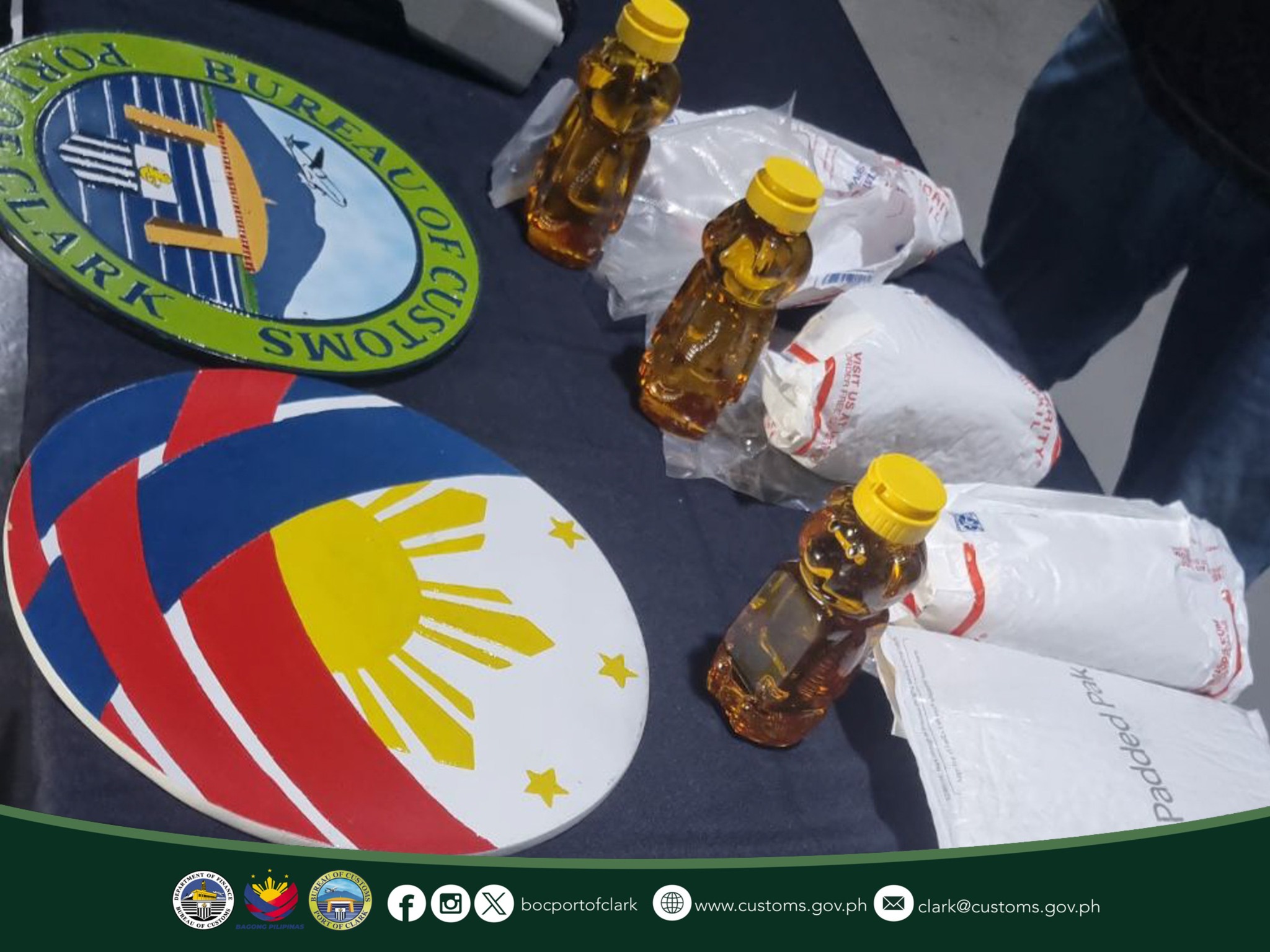
By Dean Aubrey Caratiquet
A parcel containing marijuana resin disguised as bottled raw honey that arrived on October 25, 2024, from California, U.S.A., was intercepted by the Bureau of Customs (BOC)—Port of Clark on Tuesday, Nov. 12.
The coordinated physical examination involved personnel from the Philippine Drug Enforcement Agency (PDEA), the Customs Anti-Illegal Drug Task Force (CAIDTF), the X-ray Inspection Project (XIP), the Enforcement and Security Service (ESS), and the Customs Intelligence and Investigation Service (CIIS). This joint effort resulted in the confiscation of over 1.32 kilograms of suspected high-grade marijuana resin valued at P77,866.
The shipment, declared as “Raw Honey Sample in Plastic Bottle,” was subjected to x-ray scanning and physical examination after detailed profiling by customs examiners and XIP inspectors revealed unusual images. A K-9 sniff test further indicated the presence of illegal substances, leading to the discovery of three plastic bottles containing a yellowish substance suspected to be marijuana resin.
Field testing indicated the presence of cannabinoids, and samples were subsequently sent to PDEA for laboratory analysis, which confirmed the substance as tetrahydrocannabinol (THC), a component of marijuana classified as a dangerous drug under the amended Comprehensive Dangerous Drugs Act of 2002 (R.A. 9165).
Acting District Collector Jairus Reyes noted, “This interception demonstrates our vigilance and close collaboration with partner agencies in detecting and halting illegal drugs at the border.”
As directed by President Ferdinand R. Marcos Jr., the BOC, led by Commissioner Bienvenido Y. Rubio, remains steadfast in its commitment to combating illegal drug smuggling.
“The BOC remains firm in its mission to halt smuggling and protect both our borders and the public’s health from the dangers posed by illegal substances,” Commissioner Rubio remarked.
-av
